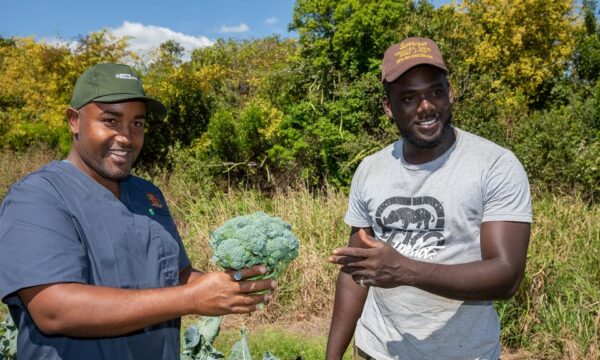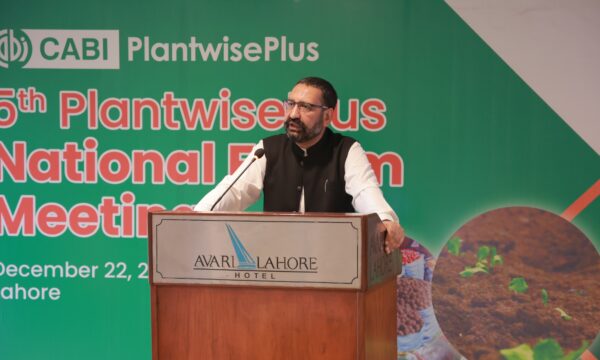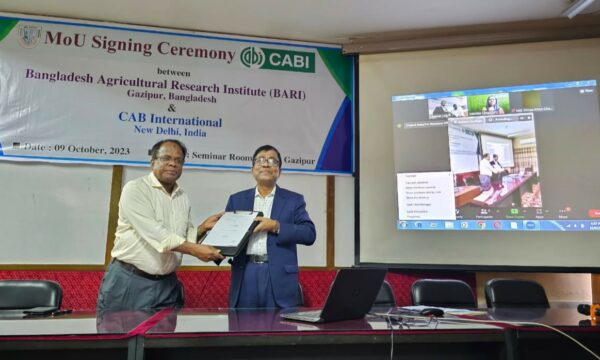The Pest Risk Information Service (PRISE) has published request for proposals (RFP) for partners in Ghana, Kenya, Malawi, and Zambia.

PRISE (prise.org) helps to improve the livelihoods of smallholder farmers by reducing crop losses caused by pests across four-sub Saharan African countries.
The PRISE project is at an exciting stage where pest models have been developed for a number of pests and are ready to be sent to users.
PRISE is looking for partners in Ghana, Kenya, Malawi, and Zambia who can offer services to disseminate pest alerts and collect feedback from users.
It is expected that PRISE pest alerts will complement an existing agri-information service already established by the partner, and reach a user-base of farmers and agri-extension personnel, with PRISE pest alerts offering value-addition to this service.
PRISE anticipates selecting multiple partners for this scope of work, therefore it is not expected that submissions cover all countries, and that PRISE may work with multiple partners in the same country.
Closing date for submissions
Kenya: 31 July 2020
Malawi: 7 August 2020
Zambia: 7 August 2020
Ghana: 4 January 2021

PRISE models risk to crop health from insect pests and plant diseases based on environmental data. Tailored messages are used to provide a risk assessment to growers in particularly regions. Advice and support is offered by the Plantwise network and other agricultural extension services, and subscribers are prompted to provide crowdsourced feedback, which is used to validate the model. This feedback loop provides greater confidence in the forecasts.
In Kenya during the 2019/2020 short rains season, PRISE and Precision Agriculture for Development (PAD) delivered a pilot of SMS messages to farmers, integrating PRISE alerts. These alerts informed farmers of the most appropriate time to intervene for the most effective and efficient fall armyworm (FAW) control, based on their location and crop stage. A survey conducted with participating farmers after the season found that 86% of farmers reported that the FAW was the biggest problem they had faced and more than half changed their practices – based on recommendations sent by text messaging – to protect their crops against the pest.
Among the farmers that implemented the recommendations, over 60% saw reduced FAW infestations, and approximately 45% saw an increase in the quantity of maize harvested.
Since PRISE’s inception in 2017, PRISE alerts have been disseminated via Plantwise plant doctors and other agricultural extension agents who in turn integrate these messages into their advice to farmers.
PRISE is continually looking to increase its reach to farmers and provide actionable advice and pest management decision-making support to farmers, extension agents, government, civil society and private sector organisations. For a snapshot of what some of the PRISE alerts provide, try out PRISE alerts.
For more information download the full RFP document or visit the RFPs webpage
PRISE is funded by the International Partnership Programme (IPP) which is run by the UK Space Agency. IPP focuses strongly on using the UK space sector’s research and innovation strengths to deliver a sustainable economic or societal benefit to emerging and developing economies around the world.
All images copyright CABI
1 Comment
Leave a Reply
Related News & Blogs
Agricultural digitalization: Opportunities and challenges discussed at workshop in India
Authors: Dr R. Rajkumar, Principal scientist, (MSSRF) and Akanksha Nagpal, Manju Thakur (CABI) Digital tools have the potential to improve agricultural productivity, sustainability, and adaptability. Alongside longtime partners, M S Swaminathan Researc…
5 April 2024





Great work and initiative from PRISE to uplift smallholder farmers through pest and disease alerts. Is the PRISE working in India for pest alerts? It will be also helpful for Indian smallholder farmers who are affected with Fall army worm and locust infestation. Best wishes to PRISE & CABI for future pest monitoring, alerts and advice in Africa.